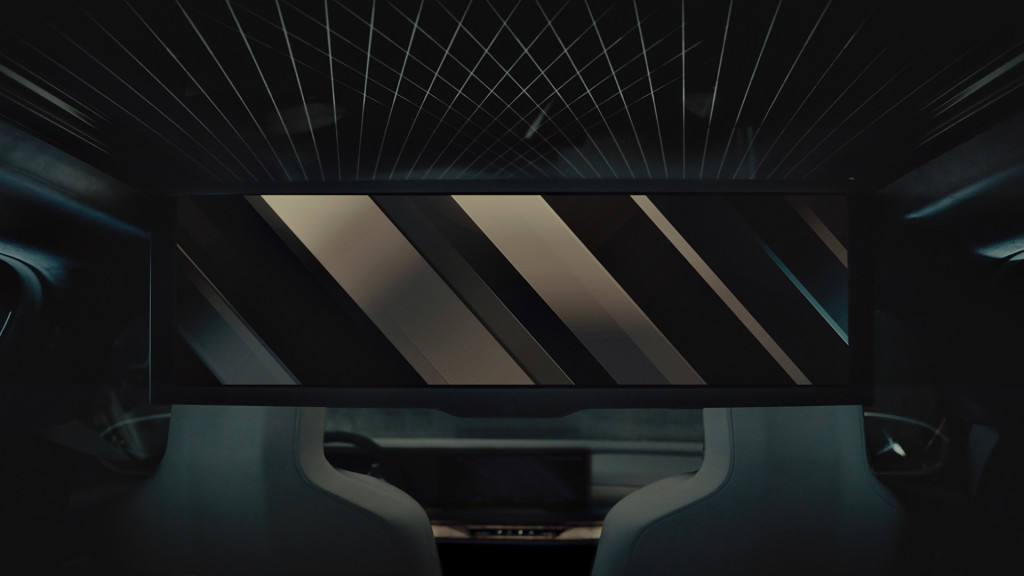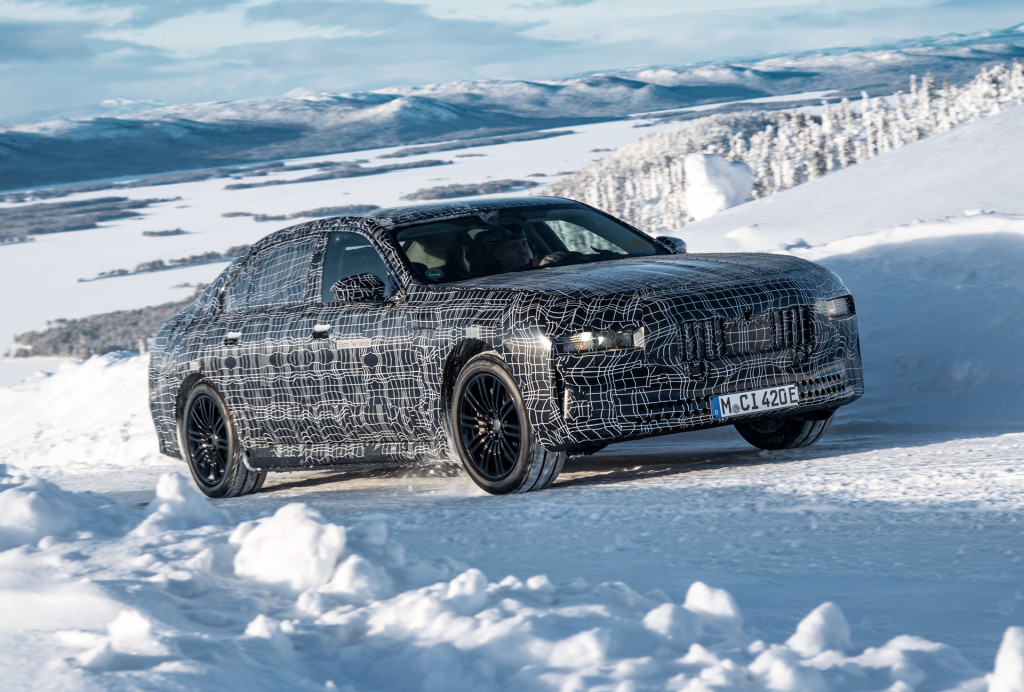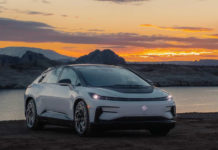BMW expects up to 305 miles of EPA-rated range for the i7, an electric version of its flagship 7-Series sedan. The i7 will be revealed in April, and is expected to go on sale as a 2023 model.
The next-generation 7-Series will likely be offered in close to the same form with both gasoline and all-electric powertrains. BMW indicated both versions will have similar exterior styling with enlarged grilles, and similar interior appointments as well.
However, the i7 will debut the BMW Theatre Screen, a 31-inch widescreen display with 8K resolution that extends from the roof liner, allowing rear-seat passengers to watch movies while they\’re chauffeured about.

Teaser for 2023 BMW i7
BMW has gone back and forth on making EVs based on its existing gasoline models. It had planned to offer a fully electric version of the 3-Series sedan, but instead we get the i4, a fastback based on the 4-Series Gran Coupe. The iX3 is an electric version of the X3 crossover SUV, but it isn\’t sold in the United States.
Dedicated EVs can offer more opportunities for increasing efficiency, however. BMW\’s estimate of around 3 miles per kwh is quite a bit lower than we\’d expected from a flagship model like the i7.
The Lucid Air offers a range of up to 520 miles, an efficiency of well over 4 miles per kwh, and an interior it says matches up to the 7-Series and Mercedes-Benz S-Class for space. Mercedes also boasts about the efficiency of its EQS, which is billed as an electric equivalent to the S-Class, but is quite different from that sedan.

2023 BMW i7 prototype
Granted, BMW\’s range estimate is consistent with the automaker\’s previous statement that it isn\’t targeting 400 miles of range or more. The automaker expects continually expanding charging infrastructure to make further range increases unnecessary.
With the discontinuation of the i3, BMW won\’t have a true dedicated EV platform until 2025, when a new family of EVs dubbed \”Neue Klasse\” (German for \”New Class\”) is scheduled to debut. The name references a family of models that saved the company in the 1960s, and largely created BMW\’s modern identity. The automaker expects EVs to make up half of its global sales by 2030, but hasn\’t put an expiration date on internal combustion.









